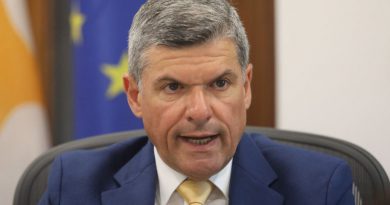India Unites for Rare Disease Patients at Hunter Alliance Summit 2025
New Delhi – The National Hunter Alliance Summit 2025, held on September 27 in New Delhi, brought together patients, caregivers, medical experts, policymakers, and advocates to spotlight the urgent needs of individuals affected by Hunter Syndrome (MPS II) and other rare diseases.
The summit opened with a heartfelt tribute to the Hunter Syndrome warriors who have lost their lives to this challenging disease. Their legacy served as a powerful reminder of the ongoing need for accessible treatment, research, and policy implementation in India’s rare disease ecosystem.
Prof. (Dr.) Shefali Gulati of AIIMS, New Delhi, and member of the Central Technical Committee for Rare Diseases (CTCRD), stressed the importance of collaboration across all stakeholders. She called for a coordinated approach that strengthens advocacy, improves patient care, and ensures efficient execution of rare disease policies.
Mr. Saurabh Singh, Co-founder and Director of the Rare Diseases India Foundation (RDIF), highlighted gaps in the implementation of the National Rare Disease Policy 2021 (NRDP). While Hunter Syndrome is officially recognized, financial support under the policy remains insufficient, and treatment costs continue to pose major challenges for families.
He emphasized that the Rs. 50 lakh assistance under NRDP does not meet the realities of treatment, which often costs crores. Patients face barriers to support, especially in private hospitals, and Ayushman Bharat Yojna benefits are limited to BPL families, leaving many patients without coverage.
Mr. Singh also pointed out the lack of caregiver support and the absence of insurance coverage for rare diseases. Limited research in India further prevents cost reduction for life-saving therapies. Judicial delays in some cases deny children their fundamental right to life under Article 21 of the Constitution, underscoring the urgency of policy action.
He drew attention to the specific challenges faced by dependents of Defence personnel and CGHS beneficiaries, where delays in drug procurement can create treatment gaps of three to six months. Despite funding allocations, bureaucratic inefficiencies continue to put lives at risk.
Drawing a parallel with India’s rapid COVID-19 vaccine development, Mr. Singh questioned why progress on rare diseases has lagged over the past 12 years. In an emotional and inspiring moment, he shared the recent loss of his 13-year-old son, Shaurya, to Hunter Syndrome.
Yet, Mr. Singh’s resolve remains unshaken. He declared, “My fight will continue until medicines become affordable or free for every rare disease patient in this country. My work will be my eternal tribute to Shaurya.” His courage resonated deeply with attendees and symbolized the collective hope and determination of countless families across India.
Ex-Serviceman HAV. D.K. Chansolia also shared his experience navigating the Defence healthcare system to procure life-saving drugs for his son. He spoke about procedural delays and the shortage of specialized experts, highlighting the need for systemic reforms.
The summit concluded with a united call to the Government and the Hon’ble Supreme Court to address these challenges urgently. Participants emphasized that timely intervention, policy support, and collaborative efforts are key to transforming the lives of rare disease patients across India.
The National Hunter Alliance Summit 2025 showcased resilience, solidarity, and the collective commitment of India’s rare disease community. It marked a significant step toward building a future where every patient has access to life-saving treatment, support, and dignity.



